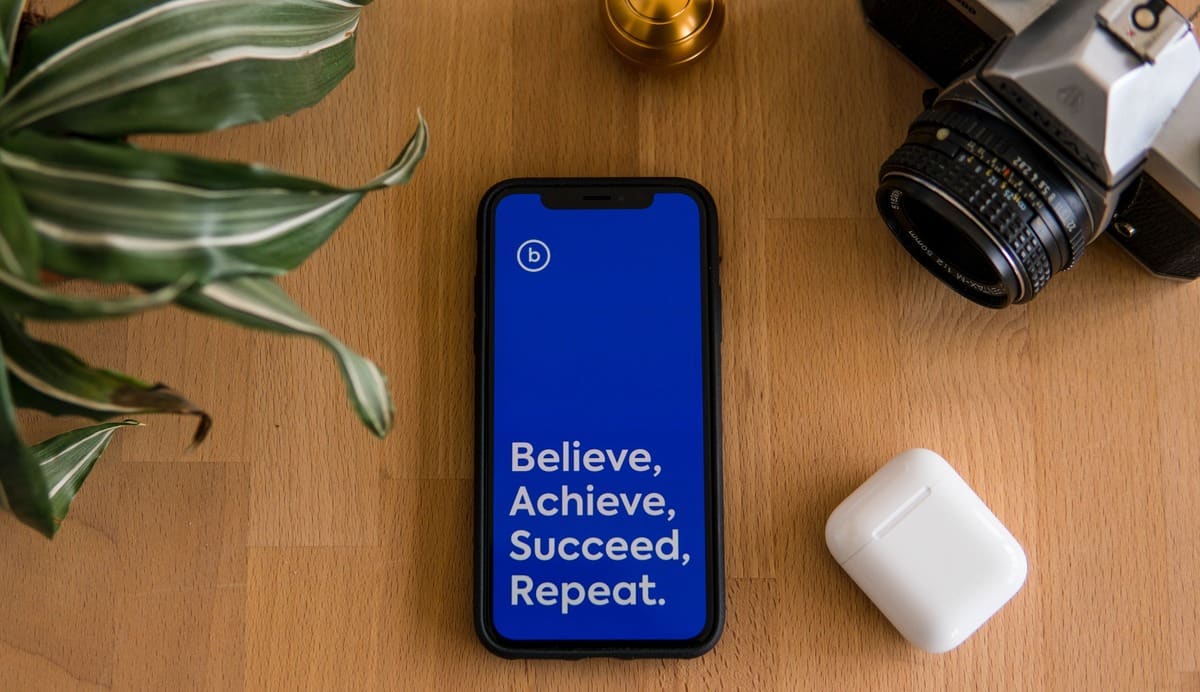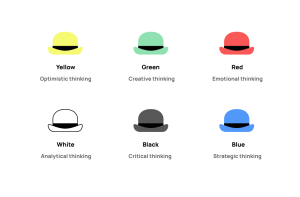How to start self-development

In order to achieve well-being and realize goals, it is important to constantly pump yourself up, gain new knowledge, improve your current physical form. All this is called self-development. This article will help those who want to start self-improvement, but do not know how.
What is self-development and self-improvement
In childhood, parents, educators and school teachers were responsible for obtaining knowledge, impressions and new experiences. With the beginning of adulthood, the process of comprehensive development stops for many people and is limited, at best, to honing professional skills, although there is a need to strive for something more.
Self-development consists of improving personal qualities, gaining new knowledge, taking care of physical and mental health. It is a full-fledged work on every sphere of life. The goal of self-development is to become better than yesterday, to cultivate new qualities and skills. In the process, life attitudes and thinking systems change, values are reassessed.
Self-improvement differs in that it is not a set of processes aimed at the complex development of personality, but the development of certain qualities. Self-improvement is a part of self-development.

Where to start self-development
First, you need to determine what exactly you want to get from self-development. To better understand your needs, take a break beforehand and take a break from your routine.
The basic technique is Brainstorm. In the process, the brain generates many ideas. For example, learn English, go to the gym, start painting, read 30 books in a month. Now that we have a rough understanding of what we want to do to improve ourselves, we need to consider each idea and understand what it provides. To do this, we use the exercise “For what?”:
- I want to take an acting class – Why?
- to be more socially liberated is the – Goal?
- to get approval from others – for what?
The outcome of the exercise can be very unexpected. Now look at your result and assess whether you can achieve what you want in a different, simpler and more logical way. Sometimes the problem can be solved in a couple of sessions with a psychologist, rather than by taking expensive courses.
The next stage is working with bodily sensations. It is important to hear your body, to understand how it reacts to what is happening. It is easier to start with everyday things. Pay attention to what reactions occur in the body when a familiar dish is brought to you in a restaurant. Is it exactly what you wanted at that moment? Or is there no response in the body?
It is important to think about your true desires. Many goals are imposed by society and are fulfilled because that is the way it is accepted in the environment and it is considered right. Or just out of habit. Why would you want to learn English to a professional level on the advice of your colleagues if you have wanted to try Spanish all your life?
The third method that helps in decision making is the “coin”. Yes, the coin that you have to toss in the air. It is not the side that falls out that matters, but our personal emotion. When the coin falls, showing eagle or tails, the subconscious mind will react: a person will be upset or happy. That will be the response. We are full of fears of failure or difficulty, so we often can’t decide to do what we want to do.
Another way is to rationally look at the situation from four sides at once:
- What will be positive if the decision is made?
- What would be the negative if the decision were to be made?
- What will be positive if the decision is not made?
- What will be negative if the decision is not made?
The result is a square that analyzes each side of the problem. Here you can clearly see the hidden benefits, fears, doubts and consequences: positive or negative.

What do you need to develop in?
Self-development differs from other systems of personal development by its multidirectional nature. If you choose one direction, it will improve only a certain area of life. Self-development affects absolutely all aspects of personality.
Physical and mental
These two areas are at the top of the list for a reason. They are basic to human health and well-being. Often, when mental and physical health are normalized, the other spheres harmonize automatically. A banal example: poor health prevents you from concentrating on a work task. Low energy level makes you refuse to meet with friends or go for a walk.
- Regularly put your home, computer, smartphone, and your mind in order.
- Watch your diet, make it balanced.
- Pay attention to your posture. The health of your entire body depends on the condition of your spine.
- Breathe properly, familiarize yourself with common breathing practices.
- Keep a healthy daily routine, go to bed on time. Avoid getting up late.
- Look for time to relax.
- Take more walks, spend more time outdoors.
- Make friends with sports. Any kind of sport will do: from weightlifting to yoga. The main thing is that it should be fun.
- Try to give up bad habits.
- Limit socializing with emotionally depressing people.
- See a psychologist.
Social and professional
Living in society certainly affects both women and men. Communication skills will help you become more successful in the professional sphere as well. What can be done here:
- Build competent relationships with others.
- Take speech courses if you have trouble negotiating or simply communicating.
- Routinely develop skills for growth in the position.
- Engage in philanthropy that resonates with the heart.
- Socializing with nice people.
- Build relationships in the family.
Intellectual
Erudite people are more interesting in communication, as they can support many of the topics the interlocutor wants to talk about. If in the institute we chose the program of study for us, the opportunities for self-education are now unlimited. It is acceptable to choose any branch and study it. It is possible to gain knowledge and develop skills:
- Take courses, enroll in institutions of additional education.
- Attend lectures, seminars, workshops (can be online).
- Watch instructional videos.
- Read the books.
- Watch documentaries.
- Communicate with experts.
- Improve native language skills.
- Learn new foreign languages.
- Trying new hobbies.
Spiritual
The area of spiritual development is an important area neglected by many. Its pumping is important for harmonizing other sectors of self-development. Spirituality is able to direct mental energy in the right direction, to aim at accomplishments, to give inspiration, to find motivation, to fill life with meaning. Spirituality can be developed through:
- Familiarization with motivational books, literature on self-discovery.
- Meditations (mind control).
- A job with a sense of responsibility for yourself.
- The study of the laws of the universe.
- Working with morality.

Self-development plan
There is no one-size-fits-all plan for all people. Everyone is at a different starting point, has a different set of basic qualities, skills, experience. Therefore, the paths of self-improvement will also be different. However, there are steps that you can take as a basis for creating your own plan:
Recognizing the importance of change
Realizing the need for changes in life is a key step on the threshold of self-improvement. Critical thinking will help to soberly assess the current state. If there are difficulties in self-development, you can be guided by the following indicators:
- “Distortion” of reality. When a person notices that people around him behave strangely, incomprehensible things happen or illogical events, it can indicate problems with his life. Routine, boredom, dissatisfaction are signals that one needs to change the picture.
- A feeling of degradation or stagnation. The person notices that he reacts to events in a different way than before. One realizes that he is not developing, but stagnating, or that life is decadent. Few things bring joy, one does not want to strive for anything.
- Emptiness inside or an anxious state. Unreasonable anxiety is one of the symptoms of a preneurotic state. The emergence of increased anxiety can be influenced by constant problems at work or at home, social pressure, age crises, etc.
- Procrastination. Regularly putting things off for the future gathers into an overwhelming lump of tasks that accumulate every day. Common causes of unresolved tasks: depression, lack of motivation and thinking of “more important things to do”.
- The influence of bad habits. When they appear not in youth, but at a conscious age, the psyche in this way tries to reduce stress levels by replacing problems. Endless browsing of social networks also belongs to bad habits.
If something on the list appears a couple times a year, you should just give your body a good rest. When one of the items is consistently noted for a long time, you need to make a life change.
Finding weaknesses and shortcomings
The next step is to recognize specific areas to work on. Which of your personal shortcomings affect your life the most? This is the area you will have to work on.
For example, if the profession does not bring satisfaction neither morally nor financially for a long time, you will have to change jobs. Sometimes a change of job is not a solution. It is necessary to radically change the field of activity. At this stage it is better to turn to psychology to get inner support and help in choosing a direction. Maybe you should remember your childhood dreams about your profession?
Goal setting
The first two steps will give a picture of existence, which will be “point A”. Next, you need to think about the desired image of yourself and the environment to which you will aspire, to identify ideas for self-development. Often this stage is the most difficult, because here you need to identify your true desires. Not everyone understands exactly what they want. If you break down at the third stage, then instead of progress there will be complaints about a life in which problems have already been identified.
You can create a step-by-step plan for the realization of the desired image by working backwards. Write down all the items you need to get rid of in one column, and in the other column write down something replacing each item. For example: low level of Spanish – I’m taking a language course. It is important to listen to your desires and not to act according to conventional patterns.
Planning
The action sheet is the beginning of the self-development plan. Then for each item you need to find ways to implement it. But it is not worth grabbing everything at once. Highlight the main things and determine how much time can be allocated for each area. Write down intermediate tasks, stages, final result and approximate time for its achievement.
Actions
No quality planning will work without action. Even small concrete steps are important. Watching a short video on a chosen topic is already an action. Global changes consist of small steps. Each overcoming of oneself is a significant contribution to a successful future. You should always remember the goal and keep a picture of the end result in your mind.

What gets in the way of self-development
Often the difficulties of self-development are blamed on external factors. But most problems are hidden inside.
Laziness. There are no people who are not familiar with this phenomenon. The mind can turn on laziness when it does not want to experience the difficulties associated with something new. It is important to remember that sometimes the reason for laziness is simple fatigue.
Lack of motivation. When there is no clear understanding of what development is for or what it will lead to, there is no incentive to try. Why change your life when the result is vague? Therefore, first clearly formulate the goal. You can resort to outside help: psychologists, coaches, motivators.
Stress. It is difficult to be full of strength and energy when there is pressure from all sides, demands to conform to limits and achieve goals. Stress is an inevitable state of the body. A short period of stress helps accelerate progress. And chronic stress will simply not allow the body to function normally. Regular rest, physical activity and seeking positive moments in life will help to cope with it.
Fear of change. Change is not always immediately accompanied by success. Often a person gets negative experience and makes mistakes. Unpleasant situations can slow down life, drive into a state of apathy. The brain does not want to be tested again, so it is afraid of change, since a positive result is not guaranteed in advance. It is important to gain experience from failures, and not to give up at any failure.
Unrealistic goal. The downside of planning is setting too global a goal, when the result is a massive change at once. It is necessary to aim more precisely. It is not necessary to abandon Napoleonic plans, but it is necessary to break the result into several intermediate stages for clarity and reconciliation of priorities. It is possible that after some time the final goal will lose its relevance and will need to be adjusted.
Useful services and tools for self-development
There are plenty of services and apps to help self-pumping.
Applications for planning and goal setting
LeaderTask
The application will help you make a to-do list, allocate time and track the fulfillment of tasks. It is very convenient and visual. The information is structured, you can attach files. Teamwork mode is supported. It is possible to keep personal projects, restricting access for others.
TickTick
The application will be especially appreciated by supporters of remote work. The service works on any platform and supports cloud synchronization. Tasks can be divided, sorted, quickly moved to the right folder or deleted.
SingularityApp
Convenient service with a clear interface and great functionality. Laconic design does not require a long time to get used to the scheduler. Tasks can be split into several projects and edited in the process. Here you can set tags, use ready-made checklists, create your own or repeat tasks as long as they are relevant.
Vacation Apps
Do Nothing For 2 Minutes
The app is different in that you don’t have to do anything in it. That’s what it’s all about. Amidst the hustle and bustle of things, it is difficult to relax even for a couple of minutes. The app has a timer – 120 seconds. During this time, according to the instructions, it is necessary to rest and relax. If you accidentally touch the mouse or press something on the keyboard within 2 minutes, the application will cancel the attempt – the screen will show a “Fail” icon.
Sleepytime
The service is suitable for people who have trouble sleeping. The feature of the application is a special calculator that calculates bedtime and wake-up time. The application will set an alarm clock by itself. Sleep calculation is based on statistical data of people of the same sex and age. The interface is clear and convenient.
Meditopia
A great service for learning about meditation. The application offers various courses, including for beginners. In addition to the educational content and the meditations themselves, you can listen to pleasant sounds of nature, birdsong, the sound of waves, rain. Workaholics will appreciate the built-in timer, which will remind about a break.
Courses and training
Stepik
An educational platform where you will find many courses on programming, data analytics, design, etc. There is a paid subscription, but the free version also offers a lot of interesting material.
Coursera
The library has lectures, courses from the best educational institutions and lecturers of the world. There is a separate section “Personal Development” for self-development. Here you can learn public speaking, improve your leadership skills, and familiarize yourself with the rules of life of successful people.
Conclusion
Reading this article is the first step to self-development. You have already received useful information. And we remember that the first step is the most difficult. You can move on with small steps, the main thing is that it brings pleasure. And you can always find pleasant ways to develop yourself.



